The effort to extinguish Turkmenistan’s ‘Gateway to Hell’
Natural gas crater in the Karakum desert has burned for five decades
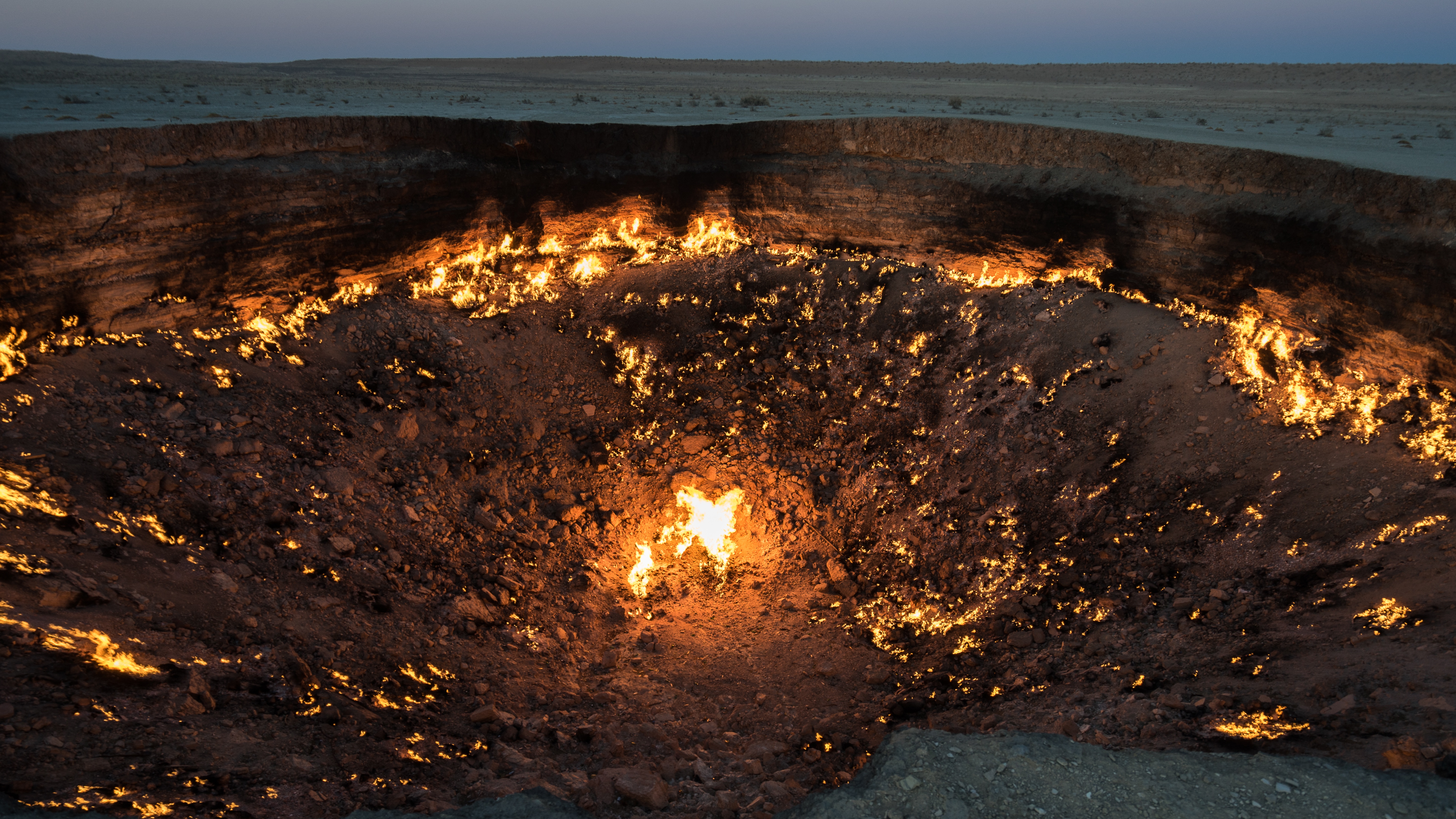
Turkmenistan’s president has ordered the extinguishing of a huge fire that has been burning for decades in a desert gas crater.
Known as the “Gateway to Hell”, the 70m wide and 20m deep crater in the heart of the Karakum desert “is thought to be the result of a botched Soviet drilling operation that released huge amounts of methane”, The Times said.
“Miners are believed to have set light to the gas to stop it from spreading,” inadvertently igniting the endless fire in the process.
The Week
Escape your echo chamber. Get the facts behind the news, plus analysis from multiple perspectives.

Sign up for The Week's Free Newsletters
From our morning news briefing to a weekly Good News Newsletter, get the best of The Week delivered directly to your inbox.
From our morning news briefing to a weekly Good News Newsletter, get the best of The Week delivered directly to your inbox.
However, “mystery surrounds the Darvaza crater’s creation”, the BBC reported, with an examination by Canadian explorer George Kourounis in 2013 concluding that “no-one actually knows how it started”.
An alternate explanation put forward by Turkmen geologists is that the “huge crater formed in the 1960s but was only lit in the 1980s”.
Kourounis, who became the first person to descend into the crater during his assessment, told National Geographic: “The place has always fascinated me. The story behind how it came into existence has been sort of shrouded in mystery, and there’s no other place like it on Earth.
“When you first set eyes on the crater, it’s like something out of a science fiction film. When you go out over, looking straight down, it’s literally like another planet, almost.”
A free daily email with the biggest news stories of the day – and the best features from TheWeek.com
President Gurbanguly Berdymukhamedov said that the pit must be extinguished as it “negatively affects both the environment and the health of the people living nearby”, continuing that he has instructed officials to “find a solution to extinguish the fire”.
“We are losing valuable natural resources for which we could get significant profits and use them for improving the well-being of our people,” he added in a televised address.
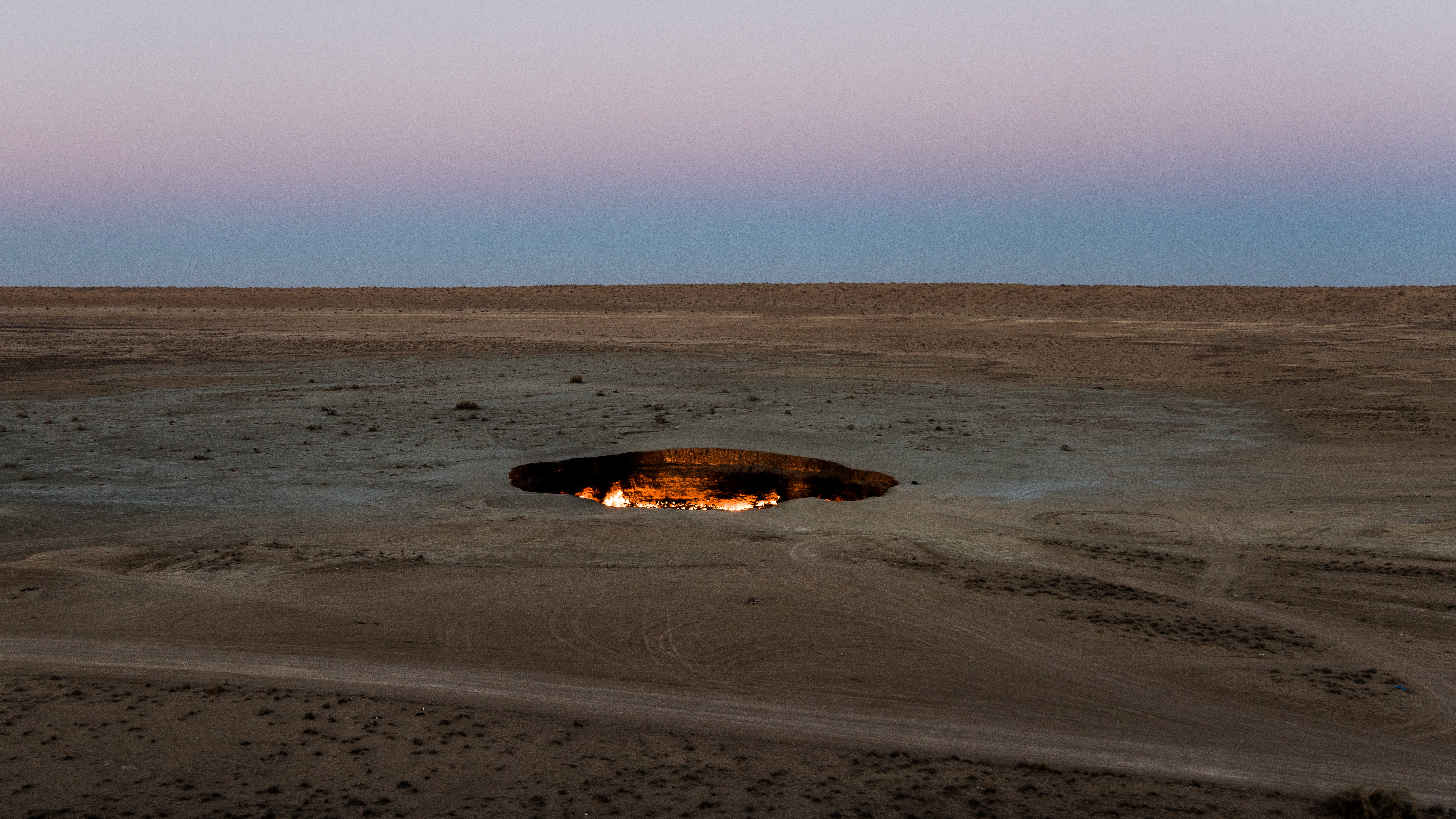
The country is home to “the world’s fifth largest natural gas reserves”, Radio Free Europe reported. But “life for the majority of the country’s six million people remains difficult”.
Berdymukhamedov has ruled since 2006 “with an iron fist, tolerating little dissent while isolating it from the outside world amid an economic crisis that has plunged many citizens into poverty”. This has meant “shortages of basic goods and food are common”.
According to Bloomberg, Turkmenistan is also “one of the world’s worst emitters of the greenhouse gas methane”, with a 2021 study by the International Energy Agency placing it behind Russia, the US, Iran and Iraq in the top five global emissions rankings for the gas.
The crater, which resembles “a supernatural portal to the underworld”, has for decades “been a big draw to the handful of tourists that enter the notoriously secretive state”, Sky News reported.
Berdymukhamedov also “hasn’t always had such disdain for the crater”, the broadcaster added, and “was filmed in 2019 speeding around it in an off-road truck”. In 2010, he officially renamed the fire the “Shining of Karakum” in an effort to drum up visitors.
How the crater will be extinguished remains to be seen, with Deutsche Welle reporting that Berdymukhamedov “previously ordered the flames be extinguished in 2010”.
-
 Climate change could lead to a reptile ‘sexpocalypse’
Climate change could lead to a reptile ‘sexpocalypse’Under the radar The gender gap has hit the animal kingdom
-
 7 hotels known for impeccable service
7 hotels known for impeccable serviceThe Week Recommends Your wish is their command
-
 6 inviting homes with event spaces
6 inviting homes with event spacesFeature Featuring a Vermont compound with an airstrip and Virginia farm with a party barn
-
 Environment breakthroughs of 2025
Environment breakthroughs of 2025In Depth Progress was made this year on carbon dioxide tracking, food waste upcycling, sodium batteries, microplastic monitoring and green concrete
-
 The Southern Ocean is holding in a ‘burp’
The Southern Ocean is holding in a ‘burp’Under the radar The heat from the past can affect the future
-
 Builders return to the stone age
Builders return to the stone ageUnder the Radar With brick building becoming ‘increasingly unsustainable’, could a reversion to stone be the future?
-
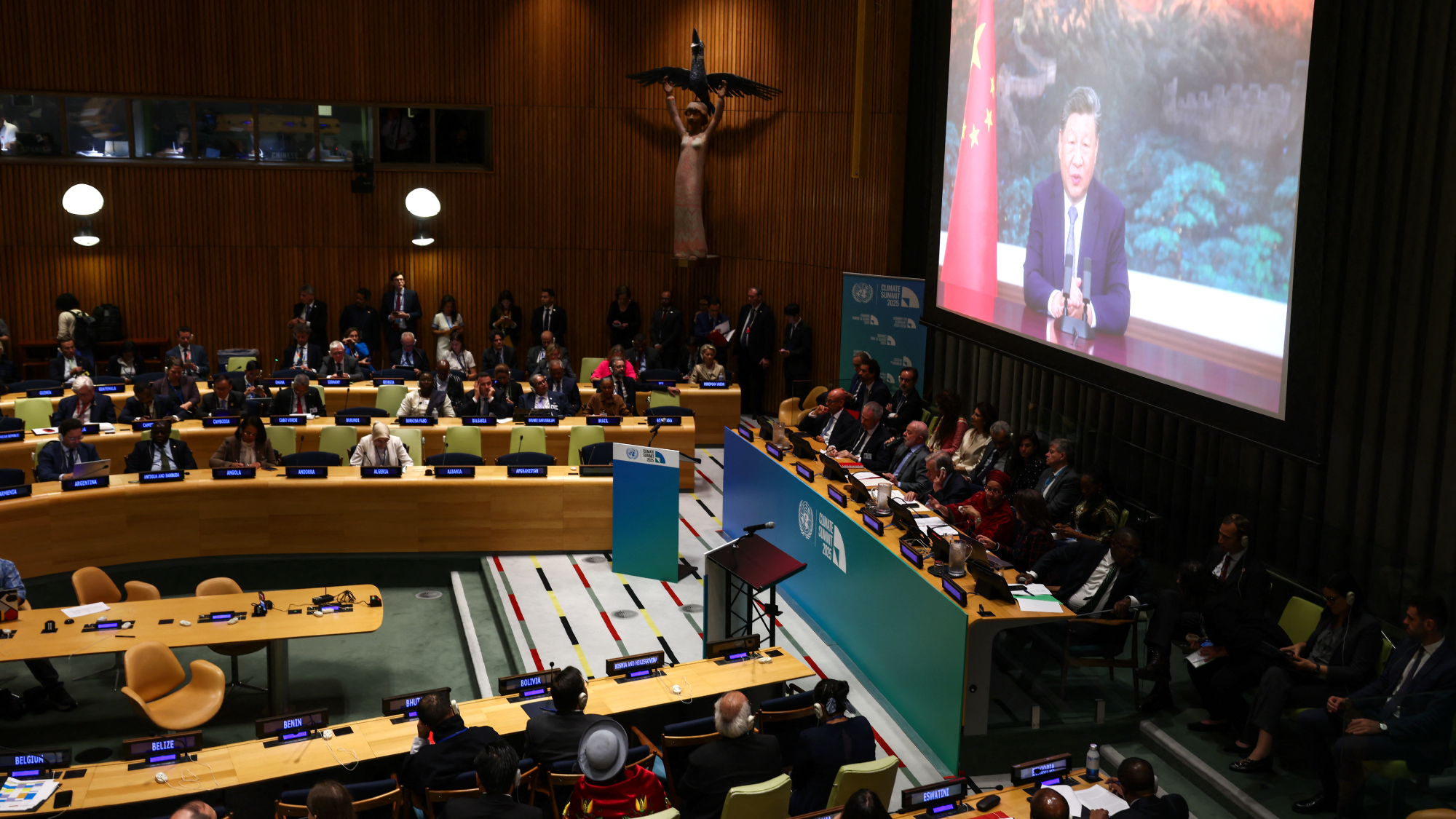 China vows first emissions cut, sidelining US
China vows first emissions cut, sidelining USSpeed Read The US, the world’s No. 2 emitter, did not attend the New York summit
-
 How carbon credits and offsets could help and hurt the climate
How carbon credits and offsets could help and hurt the climateThe explainer The credits could be allowing polluters to continue polluting
-
 Is Cop29 a 'waste of time'?
Is Cop29 a 'waste of time'?Today's Big Question World leaders stay away as spectre of Donald Trump haunts flagship UN climate summit
-
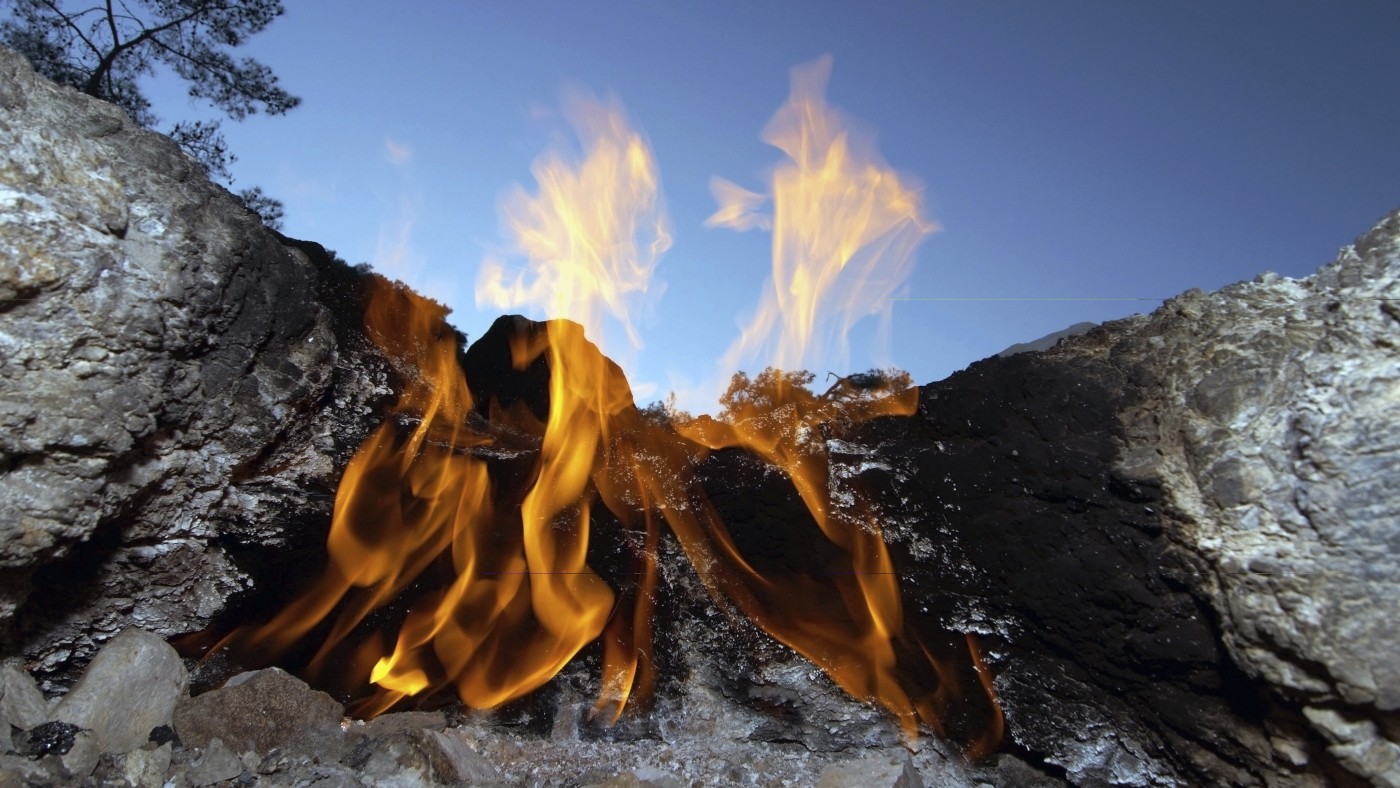 Gold hydrogen: a near limitless supply of clean fuel?
Gold hydrogen: a near limitless supply of clean fuel?Under The Radar Huge deposits found in northern France but major energy companies are holding back, for now
-
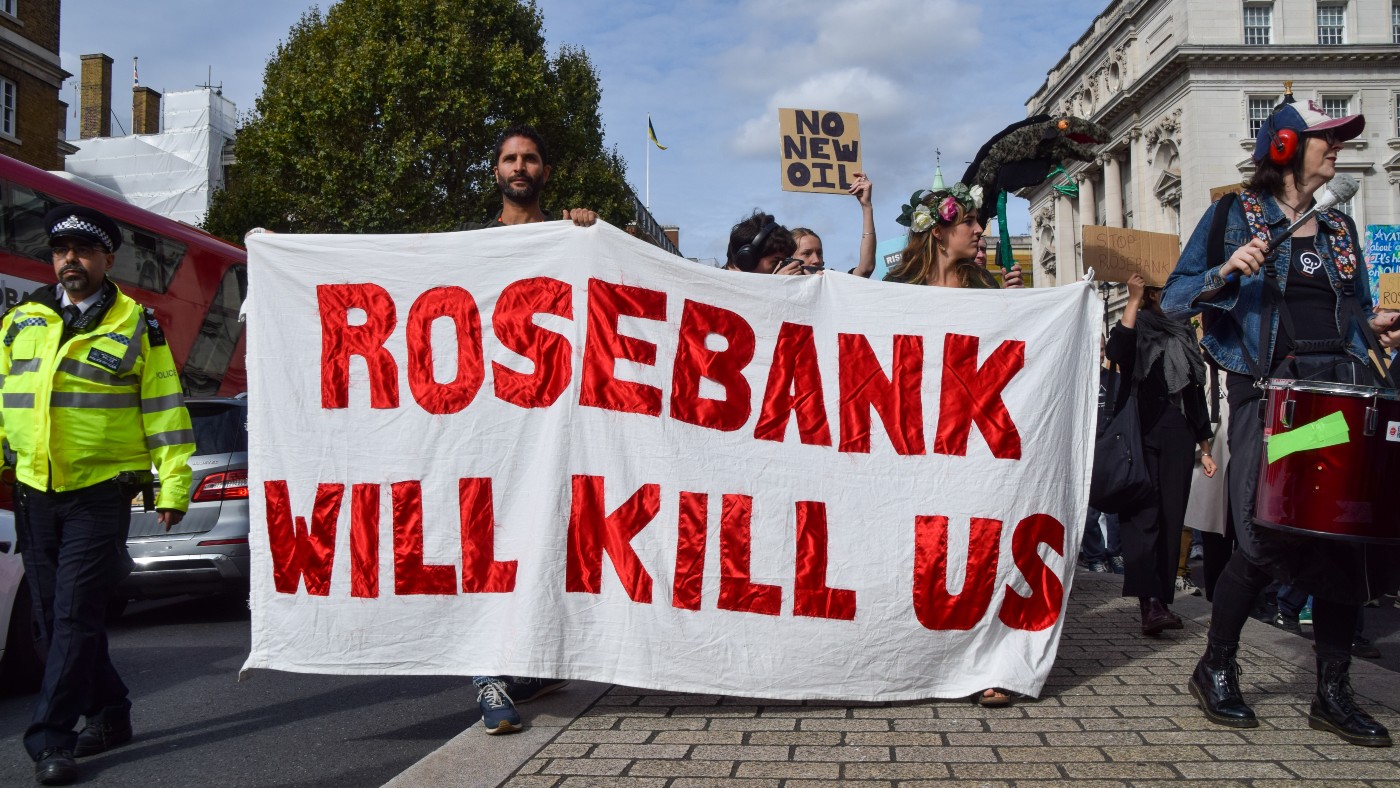 Rosebank oil field: pragmatism over future prospects?
Rosebank oil field: pragmatism over future prospects?Talking Point Green campaigners decry 'morally obscene' opening of new oil fields while trying to cut emissions